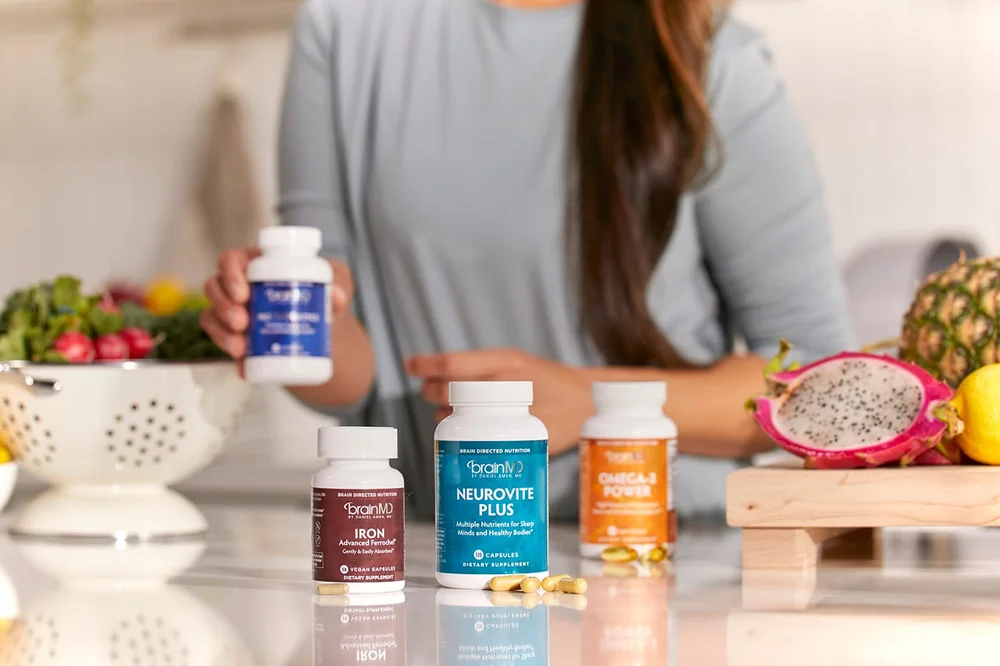Depression, Drugs, and Serotonin: How Do They Affect You?
Depression is becoming an epidemic. This severe mood disorder is affecting over 300 million Americans each year, according to the World Health Association. Depression is diagnosed when a person feels discouraged, sadness, hopeless, unmotivated, and uninterested with everyday life. To be considered a depressive episode these feelings must be present for two weeks and begin to interfere with activities such as spending time with friends and family.
Substance Abuse and Depression
It’s not uncommon for people with depression to self medicate. Unfortunately, self medication increases the risk of substance abuse.
Substance abuse while seeming to be an effective temporary solution to relieve symptoms, often makes anxiety and depressive symptoms much worse over time. When intoxication occurs with depression, it can increase the frequency of negative thoughts and leads to self-destructive behavior, “brain imaging at Amen Clinics has clearly taught us how harmful drugs abuse is to brain function,” says Dr. Daniel Amen.
Ecstasy tends to be a drug of choice for people suffering from depression. This drug is the most attractive to them because it releases the “feel good” neurotransmitter, serotonin. Unfortunately, ecstasy depletes serotonin stores in the brain and studies show that it can make people more anxious, depressed, and obsessive over time.
What is Serotonin?
Serotonin plays an important role when it comes to depression. What is serotonin exactly? It is a neurotransmitter that produces naturally in our brains before birth and throughout life. It plays intimately important roles in the brain’s biochemistry and is involved in maintaining healthy mood, self-confidence, a healthy appetite, and social engagement.
Boost Serotonin with Dietary Intervention
Instead of masking your depression symptoms with drugs and alcohol, you can help your mood by adding dietary changes, a serotonin supplement, and exercise to help. Dietary interventions should be geared toward naturally increasing serotonin, the neurotransmitter that is deficient in depression.
The amino acid tryptophan is an essential amino acid that is used to produce serotonin. However, tryptophan is found in protein-rich foods. Protein blocks serotonin synthesis, so eating a protein-rich filled meal will cause serotonin levels to drop. If you are feeling depressed, try eating carbohydrate-rich foods like whole wheat pasta, bread, and pretzels actually increase L-tryptophan levels in the brain. Adding more healthy carbohydrates to your diet can have a significant impact on the production of serotonin. Also, adding more exercise is known to release feel-good brain chemicals that can help ease in depression.
Depression isn’t easy. The great news is that making new small lifestyle habit changes can have a big impact on getting your serotonin levels back on track and help create a positive state of mind.
- Veterans Day: One Warrior Shares Some of the Best Ways to Heal from Trauma - November 2, 2023
- Could Your Mood Issues Be Linked to a Pain In the Neck? - October 13, 2023
- What’s At the Root of Your Sciatic Nerve Pain? - September 20, 2023




It says here that serotonin is the “feel good neurotransmitter” and is “deficient in depression” in an obvious reference to the popular serotonin-as-the-happiness-chemical theory launched and marketed by corporate medicine.
Yet a sizable volume of sound research studies demonstrated that increasing serotonin and tryptophan either with drugs or supplements (not food because food’s unlikely to significantly raise tryptophan or serotonin in the brain) is linked to brain dysfunction, stress hormone release, cognitive deficits, inflammation, impaired blood circulation in the brain, hypertension, cancer, and other less than “happy” effects – search for the online article “Tryptophan Side Effects: L-Tryptophan Is Far From Harmless”
The “serotonin-happiness” mantra, just like the mechanistic simplistic “chemical imbalance” idea, seem to be almost entirely an all-too convenient invention of the medical-pharma business, which allowed them to sell their highly profitable antidepressant drugs, such as SSRIs.